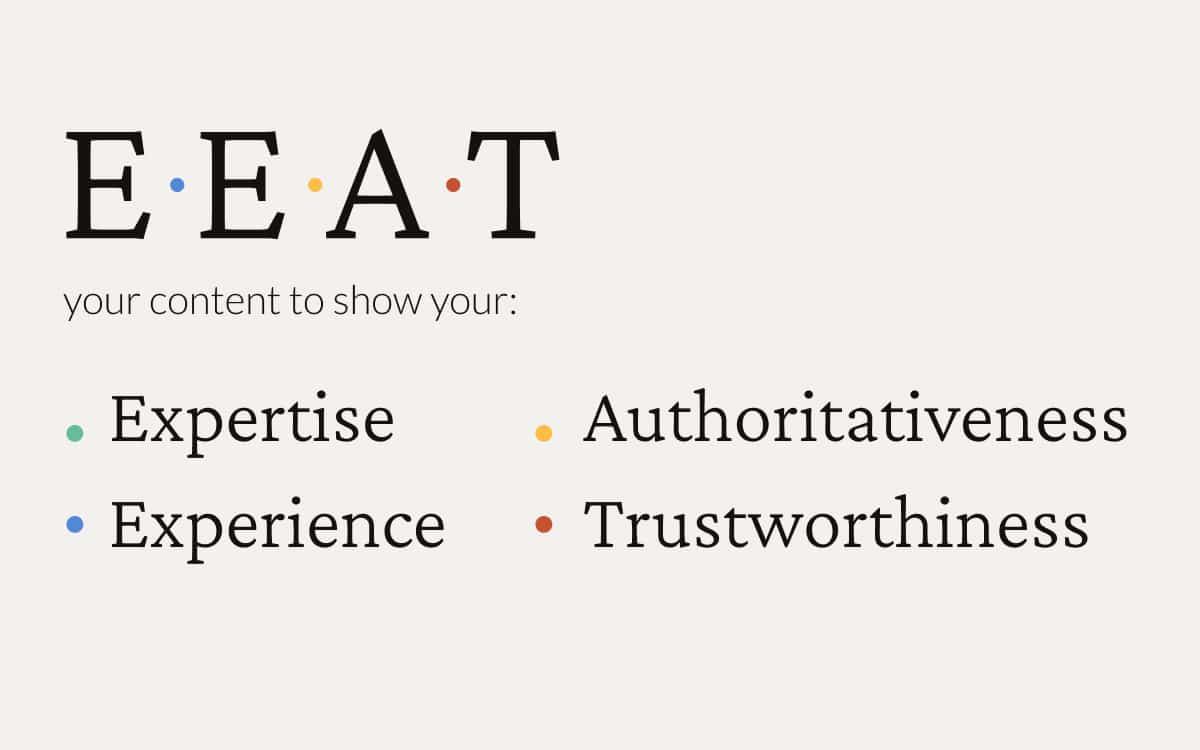Jump to:
• SGE: Search is becoming more social and interactive
• EEAT: Google prioritizes first-person experience
• AI is a powerful tool, but poses challenges
• Regulatory bodies and digital platforms are starting to impose rules about AI
• What will search and AI look like in 2024?
2023 has been an exhilarating (and sometimes) overwhelming year of breakneck innovation.
- We’re preparing for Google’s radical changes to the search experience.
- We went from “playing” with generative AI at the beginning of the year to building custom LaFleur GPTs, like Legal MarketingAI.
- Consumers’ online habits are rapidly evolving.
I could have written a weekly, book-report-style blog to tell you about the latest, greatest innovations and insights—and still not kept up with all the changes.
But most people, especially those less embedded in the world of digital marketing, wouldn’t have found those reports helpful. Instead, the LaFleur team studied, learned, analyzed, and tested a lot of hypotheses. Here, I share some of our insights about where AI and search are headed in 2024.
SGE: Search is becoming more social and interactive
People are searching for and consuming digital information differently than in the past. Consider these statistics:
- 30-40% of Millennials and Gen Z use social media as their preferred search engine.
- YouTube, a social media platform, is considered the second-largest search engine globally.
- 61% of Millennials and Gen Z prefer short content, like videos that are shorter than 60 seconds.
- People are 52% more likely to share videos, compared to other types of content.
Consumers increasingly want short, and digestible information served to them by people (and algorithms) they trust and like—not a static search engine results page. And video is often their preferred method of content consumption.
Traditional search engines must evolve to meet consumers’ demands
Google, Bing, and other traditional search engines are facing an existential crisis. Unless they evolve to meet consumers changing search habits, they could become less relevant. In 2023, the search engines responded by leveraging the increasing power and potential of generative AI and adding new, more interactive features.
- SGE (Search Generative Experience) will launch in early 2024 and will offer AI-powered snapshots that answer users’ queries in a zero-click environment. Meaning, with SGE, users will get answers on the results page without requiring them to click through to another site.
- Google will let users “follow” topics or keywords and will then deliver related information to their Google homepage.
- Google will identify websites that you repeatedly visit for information on a specific topic and give those sites priority in your search engine results.
- Consumers will soon be able to share “Notes” on search engine results pages, giving their assessment of whether your website’s content is helpful and informative.
- Google Perspectives is already sharing first-person points-of-view from social media, chat boards, forums, and Q&A sites on the search engine results pages.
In the past, I would rarely use collaborative verbs like “share” or “follow” when talking about the search experience. But Google is trying to develop an interactive ecosystem that speaks to younger demographics’ online preferences.
And if Notes becomes popular, your social listening won’t be limited to Facebook, Instagram, TikTok, and LinkedIn—you’ll also be monitoring comments and feedback on Google’s results pages.
We’re all still learning about these changes, but I don’t think that traditional SEO (search engine optimization) is going away in 2024. However, your SEO efforts will need to evolve and become more omnichannel.
In addition to your blog and website, you should start building optimized social media posts, videos, and reels that include high-value keywords and hashtags.
Remember that search prioritizes human-centered content. Keyword stuffing stopped working years ago, but it’s time to give the tactic up for good. Write for people, not just to please the algorithms.
RELATED: Making sense of Google’s newest AI announcements
EEAT: Google prioritizes first-person experience
For years, Google has emphasized that your website content should demonstrate expertise, authoritativeness, and trustworthiness (EAT). There’s now another “E” to add to the list: experience.

So, what does Google mean by experience? The search engine directed its (human) search quality raters to look for content that is grounded in the author’s first-hand or life experience. It notes:
If the purpose of a page on a clear YMYL topic [“your money, your life” topics, like legal, financial or health-related information] is to give information or offer advice, a high level of expertise may be required for the page to be trustworthy. However, sometimes pages on YMYL topics are created to share personal experiences, often regarding difficult life challenges. People turn to each other in times of need to share their own experience, seek comfort or inspiration, and learn from others. Factual information from experts and authoritative sources may not satisfy this need.
This change recognizes the power of forum sites, like Reddit, and consumers’ increasing desire to get information from trusted people, not sterile, corporate brands.
That doesn’t mean that, as a brand, your content is becoming less valued. However, it does mean that you should leverage both your subject matter expertise and your personal, first-hand experiences and observations in your content strategy:
- Create content that digs deeper into issues, sharing your personal experiences and insights.
- Focus on keywords that align with your experience and expertise—or pull in guest writers who can share their experience on your site.
- Make sure you consider your ethical and compliance obligations. For example, in most states, lawyers must get express consent from their clients before sharing case details.
Sharing your and others’ personal experiences may also strengthen your social media content and encourage engagement, since these subjects align with consumers’ increasing desire to hear (and trust) first-person perspectives.
RELATED: Human-centered storytelling with John Romano
AI is a powerful tool, but poses challenges
Generative AI is incredibly powerful. Our team has been building custom GPTs using ChatGPT that help our teams with research and analysis. Anthropic’s ClaudeAI generates relatively natural-sounding content. Midjourney and DALL-E are great for image creation, but they are imperfect.
In a previous AI article , we explored some of the issues surrounding AI-generated content. Without well-built prompts, the content is rarely human-centered. Generative AI has a history of generating misinformation and discriminatory content. And there are legitimate issues about its reliance on other creators’ intellectual property.
However, I believe that privacy and confidentiality should be your biggest concerns when using generative AI.
Privacy and confidentiality issues
If you’re using most consumer-grade generative AI platforms (including, in many cases, a ChatGPT Pro account), the company is using the information you input into the chatbot to train its large language model (LLM).
Generative AI “learns” by analyzing the information it is given. An LLM looks for patterns in its dataset and then formulates answers based on these patterns.
When you feed your proprietary information into an LLM, you run the risk of sharing that information with the world.
In 2023, Samsung banned the use of ChatGPT by its employees after multiple people shared company secrets with the platform. This included engineers who had ChatGPT check source code associated with their semiconductor business. The Samsung employees might have as well have posted their work on Reddit.
Suppose you’re a partner at a personal injury law firm. You just settled a massive, multi-million-dollar settlement with a major corporation. It includes a confidentiality agreement, and you cannot share the names of the parties or the amount of the settlement. However, you can create a redacted client success story using pseudonyms. You or your marketing agency upload your mediation brief and a couple of other documents into ChatGPT and ask the chatbot to create that success story.
You just breached your client’s confidentiality agreement. Now suppose a nosy neighbor or relative wanted to find out how much your client got in that “confidential” settlement and asked ChatGPT. If you fed that information to the chatbot, they might find out.
Consumers are increasingly using generative AI as a search engine. One of my colleagues at LaFleur recently used ChatGPT to help fix his furnace. I’ve asked it to recommend an itinerary for a family vacation (and discovered a couple hidden gems). Your business needs to keep this emerging trend at the top of mind when you’re using AI.
Don’t feed client information into a publicly available chatbot. Ever. (And if you want a copy of LaFleur’s generative AI guidelines, which address confidentiality and other issues, email me at [email protected]. I’ll send you a copy of them.)
Regulatory bodies and digital platforms are starting to impose rules about AI
These kinds of concerns are pushing regulatory bodies, like state bar associations, to issue their own guidelines and advisory opinions about the use of AI. The Florida Bar just issued the country’s first proposed advisory opinion addressing lawyers’ use of generative AI.
Broadly, the proposed advisory opinion highlights the following concepts:
- Confidentiality: If you’re using AI, make sure you understand the technology and its learning model. Remember, when you enter proprietary or client information into many generative AI programs, you’re sharing it with the world.
- Human oversight: Treat your generative AI tools like a 2L law clerk or intern. Review its work product and make sure it is accurate and meets your ethical obligations as an attorney.
- Legal fees: If you’ve created efficiencies using generative AI, don’t pad your hours. Be upfront about what you’re charging your clients—and maybe consider shifting to a contingency or flat-fee structure instead of an hourly rate.
- Legal marketing: Don’t be deceptive, make unfounded comparisons, or otherwise violate the Rules of Professional Conduct. The Florida Bar suggests that firms provide disclaimers when legal consumers interact with chatbots.
But it’s not just bar associations that are jumping on the regulatory and transparency bandwagons. Online platforms, most notably YouTube, are starting to require disclosures of synthetic or AI-supplemented content.
As you incorporate generative AI into your operations, make sure you understand the regulatory and compliance standards that are already building up around them. We’re also closely monitoring this landscape. Follow us on LinkedIn or subscribe to our newsletter to stay up-to-date.
What will search and AI look like in 2024?
2024 is going to be the year when SGE becomes mainstream (rather than a Google Labs experiment), and consumers increasingly become reliant on generative AI for information gathering.
I think SGE is going to accelerate existing trends, and we’re going to see lower click-through rates on SERPs. This will force more businesses to reassess their traditional SEO and keyword-centered strategies, likely funneling more investment and attention into social media and video content. This, in an ideal world, will result in more human-centered, personal content, which is what Google has been asking for all along.
A year ago, LaFleur was building AI sandboxes where our teams could play and learn. A year from now, I expect us to look back at our early GPTs and prompt structures and cringe at their simplicity. We’re trying to learn and fail fast—and in ways that align with our values and industry best practices. I encourage you to do the same. (Just remember to protect you and your clients’ confidential and proprietary information!)
If you need help futureproofing your marketing strategy, LaFleur can help.
References
Gurman, M. (2023, May 1). Samsung Bans ChatGPT AI Use After Spotting ChatGPT Data Leak. Bloomberg. Retrieved from https://www.bloomberg.com/news/articles/2023-05-02/samsung-bans-chatgpt-and-other-generative-ai-use-by-staff-after-leak?embedded-checkout=true
Iskiev, M. (2023, August 21). The Way People Search the Web is Changing: 4 Stats Marketers & SEOs Should Know [HubSpot Data]. HubSpot. Retrieved from https://blog.hubspot.com/marketing/how-search-behaviors-are-changing
O’Connor, J.F. and Moxley, E. (2023, November 13). Our approach to responsible AI innovation. YouTube. Retrieved from https://blog.youtube/inside-youtube/our-approach-to-responsible-ai-innovation/
Proposed Advisory Opinion on Lawyers’ and Law Firms’ Use of Generative Artificial Intelligence. (2023, October 13). The Florida Bar. Retrieved from https://www.floridabar.org/the-florida-bar-news/proposed-advisory-opinion-on-lawyers-and-law-firms-use-of-generative-artificial-intelligence/
Search Quality Evaluator Guidelines. (2023, November). Google. Retrieved from https://static.googleusercontent.com/media/guidelines.raterhub.com/en//searchqualityevaluatorguidelines.pdf
Share of Generation Z and Millennials watching mobile videos daily worldwide as of October 2020, by video length. Statista. Retrieved from https://www.statista.com/statistics/1215192/share-of-gen-z-and-millennials-watching-mobile-videos-daily-by-length/
Video Marketing Statistics 2023. Wyzowl. Retrieved from https://www.wyzowl.com/video-marketing-statistics/





